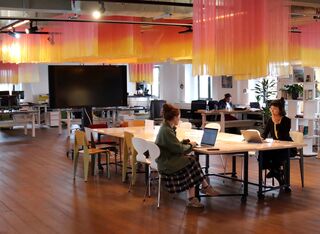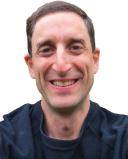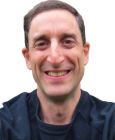Anxiety
Beyond Eco-Anxiety: Land Body Ecologies
Overcoming eco-grief through diverse eco-inspiration.
Posted May 14, 2022 Reviewed by Gary Drevitch
Environmental and social destruction affects the mental health and well-being of people around the world. A new research project, on which I am a collaborator, is working to provide support and ways forward by linking diverse groups experiencing difficult local and global changes.
Land Body Ecologies was awarded a £1 million grant last year by the Wellcome Trust in London. To unpack solastalgia, which refers to distress emerging from environmental change, the project’s aims are threefold:
- Understand how the mental health of marginalised communities is affected by changes in their ecosystems.
- Explore the definition of solastalgia as it currently stands and whether it encompasses the lived experiences of marginalised, land-dependent communities.
- Understand the role that historical and contemporary violence faced by these communities plays in their lived experience of solastalgia.
Our work connects science, art, experience, and on-the-ground action to do better for our land and our bodies through interwoven ecologies.
The communities in focus have experienced violence and trauma in their interconnected lands and cultures. All are seeking to help themselves in surmounting the challenges for creating the future they seek.
They recognize that mental health and wellbeing support must incorporate structural components that we typically rely on. Prominent are health systems and social services with sufficient personnel, training, and resources, while especially aiming for prevention rather than always seeking cure after problems arise.
They also promote and pursue more than the usual structures, developing cultures to generate what people and communities need and look for. In particular, concerns about people’s mental health and wellbeing too often remain stigmatized rather than redressed.
Meanwhile, the ever-present doom-and-gloom narratives about the planet and humanity spiraling into catastrophe lead to despondency and despair. These uncritical, presumed mantras bombard the climate crisis, eco-grief, anxiety, and solastalgia, dominating the discourse. The negative mental health and well-being consequences, perhaps, result more from assumptions of catastrophism than from the actual impacts. Yet Land Body Ecologies brings forward an urgent reminder that many communities, often marginalised, are indeed living through land trauma in the present.
There is, in fact, no denying the intense and immense ills facing our intertwined societies and environments. Many realistic scenarios of huge problems exist: Terrifyingly lethal heat-humidity now, acidifying oceans over decades, and possible ice sheet collapse over centuries, among others. There remains plenty to do and plenty is being done to inspire and to solve—to create eco-inspiration for positive mental health and well-being outcomes.

Land Body Ecologies leads the way. The project was awarded an exciting research space at the top of the Wellcome Trust Collection building in central London. As a meeting and exhibition place, it melds art, science, and action—connecting peoples and ideas.
Learning from each partner’s histories and futures means sharing successes and deciding what applies and succeeds in various ways in different places. From taking legal action against land grabbers to teaching the next generation the knowledge of the ecosystems and creatures therein, we learn the harm being imposed and how to stop the damage.
Exchange for doing brings balance. Strength emerges through diversity. The trauma and violence to people and the planet are real—as are the hopes. Across continents, languages, and wisdoms, Land Body Ecologies is not three separate concepts, but a single healing and bettering process.
Five places and peoples are partners in this project, forming a network of hubs:
- The Ogiek Peoples’ Development Program, representing the indigenous Ogiek in Mau Forest, Kenya.
- Quicksand, a futures designing consultancy in Bannerghatta, India.
- Waria, a creative solutions company in Northern Finland.
- Action for Batwa Empowerment Group, an organization representing the indigenous Batwa in southwest Uganda.
- Invisible Flock and Minority Rights Group, an art studio and a human rights organisation, respectively, which are based in the UK.
References
Ahmad, A. 2022. The art of medicine. Researcher trauma: when our stories collide. The Lancet, vol. 399, pp. 1860-1861.
Ahmad, A. and J. Gosling. 2021. The remoteness of pain in Canada's Indigenous peoples' collective memory. The Lancet, vol. 398, no. 10303, pp. 841-842.
Invisible Flock Studio (ed.). 2021. Creative Responses to Sustainability: UK Green Guide, Asia-Europe Foundation (ASEF), Singapore.
Outi, A. 2021. Environmental trauma in the narratives of postwar reconstruction: the loss of place and identity in northern Finland after World War II. In: Trauma, Experience and Narrative in Europe after the Second World War, pp. 267-297, edited by V. Kivimäki and P. Leese, Palgrave, London.


